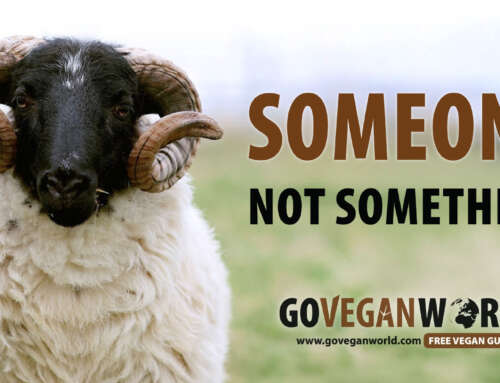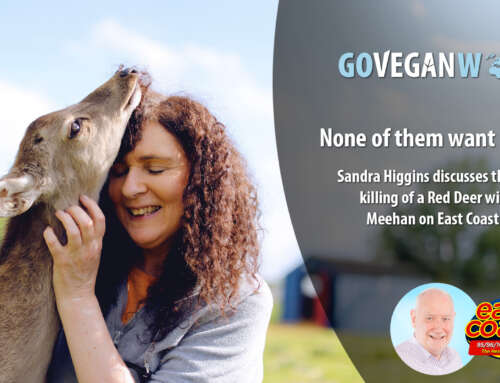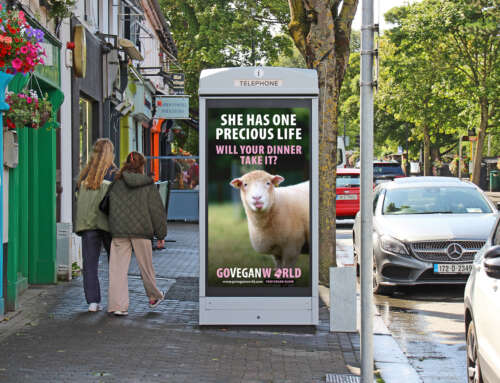No Climate Justice & No Environmental Protection without Veganism
Two of the most pressing issues today are human caused climate change and our destruction of the environment. These are the pertinent areas at which human and non-human rights intersect. Of particular interest to our work at Go Vegan World is the fact that our use of other animals through the animal agriculture industry is a significant contributory factor to both.
The effects of climate change and destruction of the environment are not felt equally. Those experiencing the greatest impact contribute least to creating the problem. They include low income countries that rely on dependable weather conditions to grow food. They include women and children who are more likely to bear the brunt of climate breakdown and die than men (Okai, A UNDP, in Leahy, C, 2024). They include the elderly, the sick, those who are disabled, and other animals.
Most people are aware of the urgent need to end our use of fossil fuels. But even if that goal is achieved, food related emissions will raise global temperatures to catastrophic levels (Ritchie, H, Our World in Data; Clarke et al, 2020). Our food system is currently responsible for between 26% and 34% of emissions, mostly caused by animal agriculture (Poore and Nemecek (2018); Crippa et al, (2021), Therefore, it is essential that production and consumption focuses on food that is low in emissions and causes the least environmental destruction (i.e. plant foods) while meeting our nutritional needs.
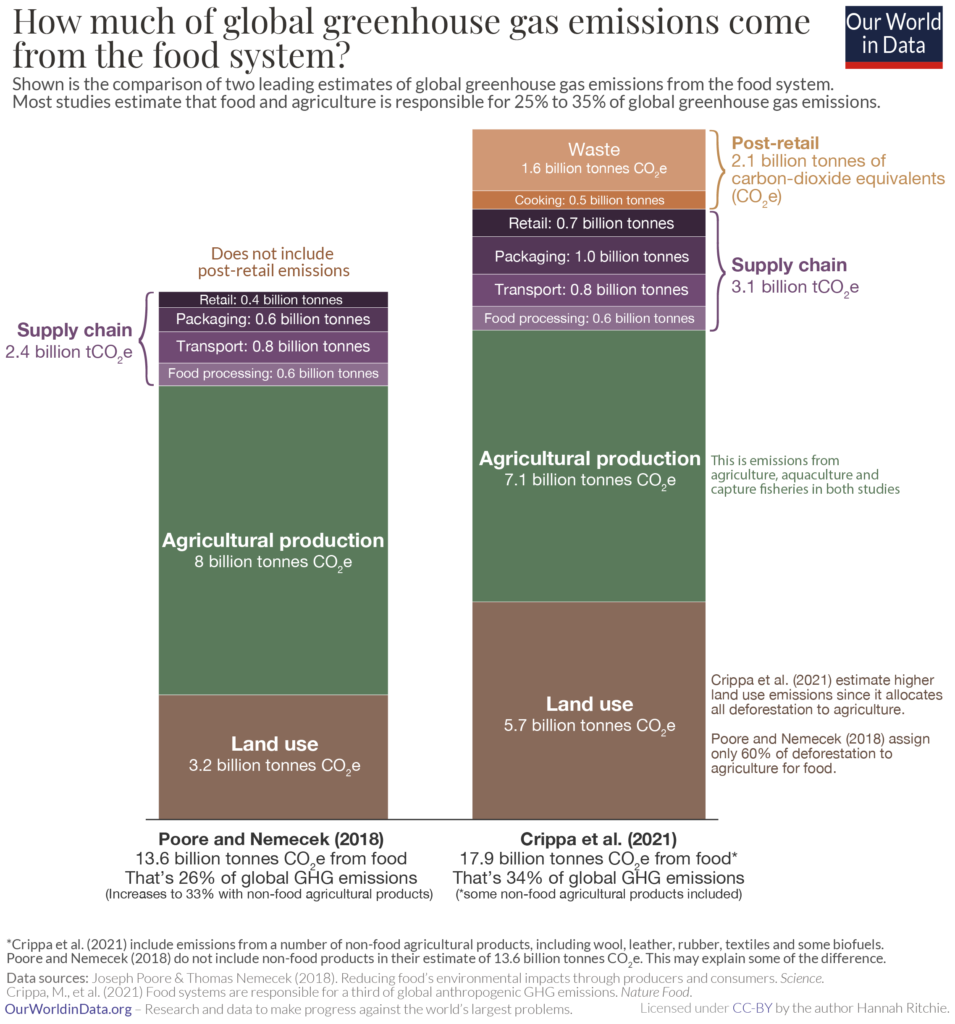
To gain a better understanding of the damage caused by our consumption of animal products, a recent study comparing the effects of various diets is well worth examining in detail. The study at the University of Oxford analysed the diets of 55,000 individuals in the UK, utilising data from 38,000 farms across 119 countries, was recently conducted at the University of Oxford. The peer reviewed study, published in the journal Nature Food, and spearheaded by Peter Scarborough, revealed that a vegan diet results in a 75% reduction in emissions, water pollution and land use compared to non-vegan diets (those exceeding 100g animal flesh daily). Additionally, the study demonstrated that a vegan diet diminishes wildlife destruction by 66%, water use by 54% and methane emissions by 93.5% (Scarborough et al, 2023).
Methane, accounting for 20% of global GHG emissions, possesses a greater warming potential than Co2, being 80 times more potent over a twenty year period. Despite its shorter atmospheric lifespan, around 12 years compared to CO2’s 100 to 100 years, methane significantly intensifies heat trapping.
Animal Rights: Human Rights
Many people assert their support for human rights. Human rights include the right to a clean, healthy, and sustainable environment. The undeniable reality is that the production and consumption of animal products stand as a primary catalyst for climate warming, environmental destruction, human disease, and early mortality – directly conflicting with our rights. What, or who, we put in our shopping trolleys, our lunch boxes and on our dinner plates, matters for our own rights as well as for animal rights.
Adopting a 100% plant-based vegan diet, without animal products, significantly mitigates the risk of various human diseases and lessens the environmental impact of food production.
Unsurprisingly, the animal agriculture industry endeavours to conceal such information. This is particularly true of the powerful animal agriculture industry in Ireland where emissions from agriculture (37.8%), significantly outweigh other sectors (Transport 21.4%; Energy 14.3%; Residential 9.7%)(EPA Ireland, 2024).
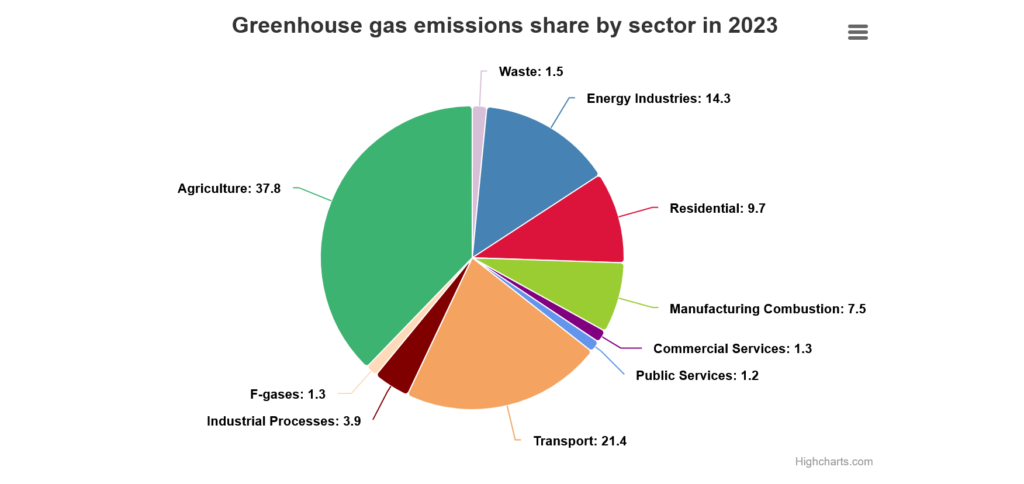
EPA Ireland, www.epa.ie (Accessed 01.11.2024)
Veganism is Not Just a Diet
At the micro level of food production and consumption, it is very clear that we need to urgently transition to a plant-based diet. However, at the macro level, we need to recognise that others are as entitled to a safe healthy environment and to live free of oppression as we are, regardless of their race, gender, age, or species membership. That is the essence of justice. It is difficult to see how we can achieve climate justice or environmental protection while we maintain the speciesist view that others do not matter because they are not human.
Each one of the billions of land animals and trillions of sea animals we slaughter annually, was a being with the same capacity to feel as us. It is now evident that exploiting and killing them for human use is not only unethical but also intricately tied to the violation of human rights.
Members of the public are entitled to accurate information on the consequences of their choices for the planet’s future, personal wellbeing and the lives of the animals we use. Access to accurate information regarding the causes of climate heating, environmental destruction, and biodiversity loss, along with education on the behavioural changes necessary to reduce our environmental impact through our diets and lifestyles is crucial for climate protection. Go Vegan World aims to disseminate this vital data to the public in a readily accessible manner. Our ads will appear on one hundred buses throughout Ireland to celebrate World Vegan Month 2024.
References
Bully Beef, George Monbiot, December 2023 https://www.monbiot.com/2023/12/21/bully-beef/ Accessed 02.01.2024
Clark, Michael A., Nina GG Domingo, Kimberly Colgan, Sumil K. Thakrar, David Tilman, John Lynch, Inês L. Azevedo, and Jason D. Hill. “Global food system emissions could preclude achieving the 1.5° and 2° C climate change targets.” Science 370, no. 6517 (2020): 705-708.
Crippa, M., Solazzo, E., Guizzardi, D. et al.Food systems are responsible for a third of global anthropogenic GHG emissions. Nature Food (2021).
Latest Emissions Data, EPA Ireland, July 2024.
Mapped: Inside Ireland’s Powerful Farming Lobby (Cooke, P and Hermann, M 2024)
Methane: A crucial opportunity in the climate fight, Environmental Defense Fund, https://www.edf.org/climate/methane-crucial-opportunity-climate-fight, Accessed 06/02/2024
Nelson Iván Agudelo Higuita, Regina LaRocque, Alice McGushin,, Climate change, industrial animal agriculture, and the role of physicians – Time to act, The Journal of Climate Change and Health, Volume 13, 2023, 100260, ISSN 2667-2782, https://doi.org/10.1016/j.joclim.2023.100260. Accessed 06.02.2024
Poore, J., & Nemecek, T. (2018). Reducing food’s environmental impacts through producers and consumers. Science, 360(6392), 987-992.
Hannah Ritchie (2021) – “Emissions from food alone could use up all of our budget for 1.5°C or 2°C – but we have a range of opportunities to avoid this” Published online at OurWorldinData.org. Retrieved from: ‘https://ourworldindata.org/food-emissions-carbon-budget’ [Online Resource]
Scarborough, P., Clark, M., Cobiac, L. et al. Vegans, vegetarians, fish-eaters and meat-eaters in the UK show discrepant environmental impacts. Nat Food 4, 565–574 (2023). https://doi.org/10.1038/s43016-023-00795-w
What is the Right to a Healthy Environment? United Nations Development Programme, United Nations Environment Programme, https://www.undp.org/sites/g/files/zskgke326/files/2023-01/UNDP-UNEP-UNHCHR-What-is-the-Right-to-a-Healthy-Environment.pdf Accessed 06.02.2024
Women are 14 times more likely to die in a climate disaster than men, The Conversation, Leahy CP, 2024)
See www.goveganworld.com for more information.




